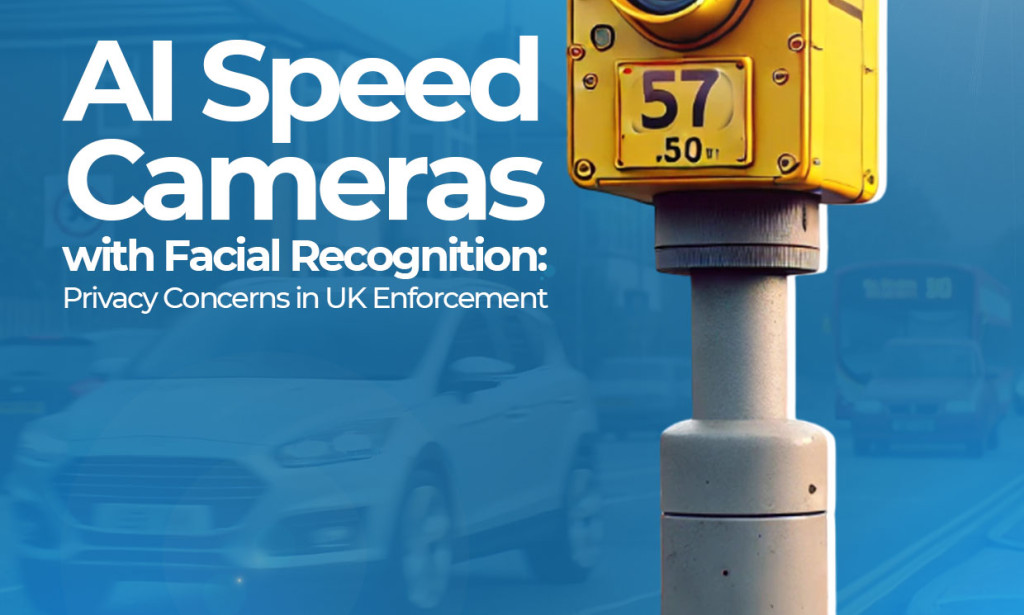The use of AI is increasingly becoming popular for public safety across the UK, especially with the AI speed cameras with facial recognition on speed radars at the center of new law enforcement.
Even though these systems are designed for drivers' safety and improved policing, they raise major privacy issues that have become a major discussion point among the general public and demand urgent regulatory scrutiny.
The Rise Of AI Speed Cameras With Facial Recognition Features
For years, authorities have relied upon traditional speed cameras to deter dangerous driving and enforce speed limits.
But, lately new AI sped cameras with facial recognition technology are being introduced to the market that not only measures speed but also scan offences like seatbelt violations or using mobile phones while driving.
What makes these new cameras different is that they can identify both drivers and passengers.
TechPolicy.Press reveals that this shift to use AI-enabled surveillance is part of the UK’s wider tendency for police to rely on biometric systems to oversee public areas, spot people, and address crimes.
AI Speed Cameras And Privacy Concerns Attached To Its Rise
-
Lack Of Clear Laws And Regulations
Even with the UK having signed on to the Council of Europe’s Convention, this technology is not supervised by any national or local law, and there is no controlling body. Right now, there is no cohesive framework for oversight, which results in many important gaps in both protection and proper accountability.
-
Mass Intrusion And Citizens’ Freedom
These speed cameras use facial recognition to scan and recognise thousands of drivers every single day. It raises doubts about how surveillance on a massive scale might affect our right to both freedom of movement and freedom of assembly. According to organisations like Liberty, the UK leads the world in setting up secret surveillance systems.
-
Ethical Implications Linked To Scanning Seatbelts And Mobile Phone Violations
Even though scanning for seatbelt and use of phone while driving aims to improve road safety, the ethical implications surrounding this practice are complicated.
-
Reasonable instances: Are roadside facial scans the right way to look for an offence from only individuals in a minority?
-
Innocent drivers: What happens to the facial information you record? If the police cannot match a person to their data, the police say they delete the information, though only weak controls and little outside inspection are in place.
-
Algorithmic bias: According to a UK National Physical Laboratory study and others, algorithms provide many false positive matches for Black faces compared to White or Asian faces. As a result, people may suffer unfair judgment and be excluded from programmes.
-
Maintaining Watchlists And Using Predictive Policing Methods
Relying on AI powered cameras to compare drivers against police watchlists or to predict potential offences creates even more problems. Without clear legal boundaries, there is potential for mission creep, where the use of technology can turn beyond its intended purpose, such as observing protests or singaling out marginalised groups.
Public Backlash And Calls For Reform
There is increasing tension among the general public regarding the rise of speed cameras with facial recognition features. The Alan Turing Institute discovered that more than half of the people in Britain feel concerned about biometric data being used by police and private businesses.
Both, The House of Lords and the rights groups have urged that a new law should aim for transparency, accountability and ease of access.
Recent rulings, such as the one removing the ICO’s fine on Clearview AI, underline the problem in protecting UK citizens from misuse of facial recognition data when companies and international parties are involved.
Striking A Balance!
AI speed cameras with facial recognition technology can help a lot when it comes to road safety and reduction of criminal traffic offences.
However, privacy concerns and ethical dilemmas make these benefits questionable.
As more and more AI technological advancements are brought into use by the UK government, lawmakers must:
-
Set firm regulations and include independent supervision.
-
Be sure to minimise how much data you collect and have solid systems for data removal.
-
Make sure there is no bias in the algorithms and avoid any unfair treatment.
-
Decide on clear rules for using watchlists and for computerised predictive policing.
Without these safeguards, these AI speed cameras could risk eroding public trust, violate what is right for everyone and encourage increased surveillance in democracies.



You must be logged in to post a comment.